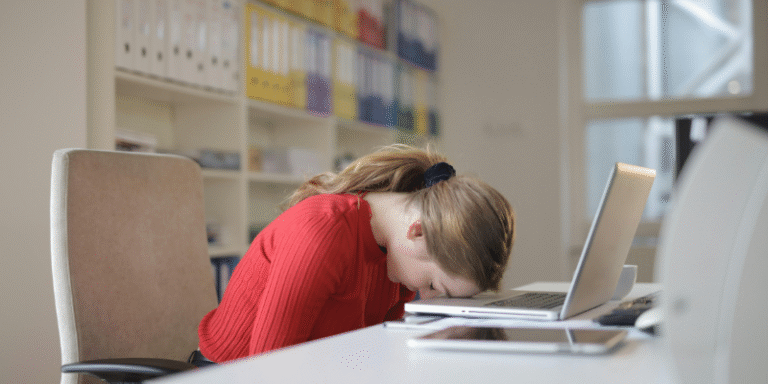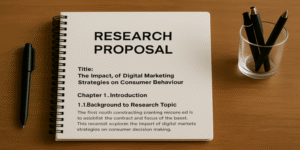Tiredness is a common complaint among people of all ages. It’s frustrating to feel persistently fatigued despite getting what is widely considered to be a sufficient amount of sleep. Eight hours per night is typically recommended for adults, yet many people still feel exhausted throughout the day. So, what could be the cause? This article explores the potential explanations for ongoing tiredness, drawing on medical, psychological, and lifestyle factors.
1.0 Quantity vs Quality of Sleep
While eight hours of sleep is generally accepted as ideal for most adults, individual sleep needs vary. Winston Churchill famously functioned on as little as four hours of nightly sleep, compensating with brief daytime naps (Robbins & Judge, 2019). However, it is not just the number of hours slept that determines how rested one feels, but the quality of sleep. Deep sleep, particularly during the first part of the night, plays a crucial role in physical and mental restoration (Walker, 2017).
Poor quality sleep can be caused by several factors. Snoring, often overlooked, may significantly reduce sleep quality. Loud, persistent snoring can indicate obstructive sleep apnoea (OSA), a condition where breathing temporarily stops during sleep. This causes repeated awakenings throughout the night, often without the individual realising. OSA is more prevalent in individuals with a neck circumference over 17 inches, those who are overweight, smokers, and heavy alcohol users (NHS, 2023).
In addition, environmental factors such as an overly warm or stuffy bedroom can disrupt sleep. Sleep specialists recommend a cool, well-ventilated room to promote deeper, uninterrupted rest (Chokroverty, 2017). Turning off the radiator and slightly opening a window may significantly improve your sleep environment.
2.0 Could a Medical Condition Be the Cause?
If sleep quality and duration are both adequate, persistent tiredness might stem from an underlying medical condition. General practitioners frequently encounter patients with what is colloquially known in the profession as “TATT” – Tired All The Time (O’Connor & Burke, 2016).
One of the most common medical causes of fatigue is anaemia, particularly iron-deficiency anaemia. This condition, often due to poor dietary iron intake or blood loss (such as from heavy menstrual periods), reduces the blood’s ability to carry oxygen, resulting in constant tiredness and weakness (British Heart Foundation, 2022). Anaemia caused by vitamin B12 or folate deficiency is also common and is easily diagnosed through a blood test.
Another frequent culprit is hypothyroidism, or an underactive thyroid gland. This condition slows down the body’s metabolism and is accompanied by other symptoms such as weight gain, dry skin, hair thinning, and constipation (NICE, 2020). Like anaemia, hypothyroidism can be detected through simple blood tests.
Diabetes mellitus, both Type 1 and Type 2, can also lead to fatigue due to fluctuations in blood sugar levels. Patients may feel particularly drained if the condition is poorly managed (Diabetes UK, 2023). Other red flags include excessive thirst, frequent urination, and unexplained weight loss.
Although rare, persistent tiredness may signal a more serious illness such as cancer. For instance, leukaemia, a cancer of the blood, often presents with fatigue, unexplained bruising, and frequent infections. However, cancer is usually accompanied by more specific symptoms, such as significant weight loss, night sweats, or a palpable lump (Cancer Research UK, 2024).
Medications also warrant consideration. Many commonly prescribed drugs – such as beta-blockers, antihistamines, tranquillisers, and some sleep aids – can leave individuals feeling lethargic or mentally foggy, especially if taken at night (BNF, 2023).
3.0 The Psychological Connection: Depression and Stress
Fatigue is not always physical; it can also stem from psychological conditions. Feeling persistently tired, losing interest in daily activities, becoming emotionally withdrawn, or experiencing changes in sleep patterns may all point toward depression. People suffering from depression often wake early in the morning and are unable to return to sleep, feel chronically unmotivated, and lose interest in work, hobbies, or relationships (NICE, 2022).
Stress, anxiety, and burnout also contribute significantly to tiredness. Working long hours without sufficient rest and recovery, juggling multiple responsibilities, or facing constant psychological pressure can lead to a state of mental exhaustion. According to the Mental Health Foundation (2023), chronic stress can impact sleep, appetite, and overall energy levels.
In both depression and anxiety, individuals may confuse emotional tiredness with physical fatigue. Treatment options include counselling, lifestyle adjustments, and in some cases, antidepressant medications, which modern research shows are generally safe and non-addictive (Stahl, 2013).
4.0 Lifestyle Factors
Beyond sleep and health issues, lifestyle choices have a substantial impact on how energised we feel. Poor diet, lack of exercise, dehydration, excessive caffeine, and alcohol consumption can all drain our energy. A balanced diet rich in whole grains, vegetables, lean proteins, and healthy fats supports stable energy levels (British Nutrition Foundation, 2022).
Regular physical activity also combats fatigue by improving cardiovascular health, boosting endorphins, and enhancing sleep quality. Even short daily walks can reduce tiredness over time (WHO, 2022).
Overreliance on stimulants like caffeine may offer short-term alertness but often leads to a subsequent energy crash. Alcohol, while sedative, impairs REM sleep and can worsen fatigue the following day (Walker, 2017).
5.0 When to See a Doctor
If you’ve addressed lifestyle and environmental factors and still feel tired every day, it is important to consult your GP. Fatigue can be a complex symptom with multiple causes, and early diagnosis of underlying issues can significantly improve quality of life.
Blood tests, medication reviews, and a holistic assessment of your mental and physical health will allow healthcare professionals to determine the root cause. Most conditions associated with fatigue – whether physical or mental – are treatable with the right approach.
Tiredness despite sufficient sleep is a common issue with many potential explanations. While poor sleep quality, medical conditions, and psychological distress are common culprits, lifestyle habits and environmental factors also play a role. Persistent tiredness should never be ignored. Through a combination of personal reflection and professional medical advice, most people can regain their energy and quality of life.









